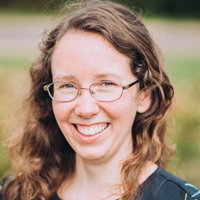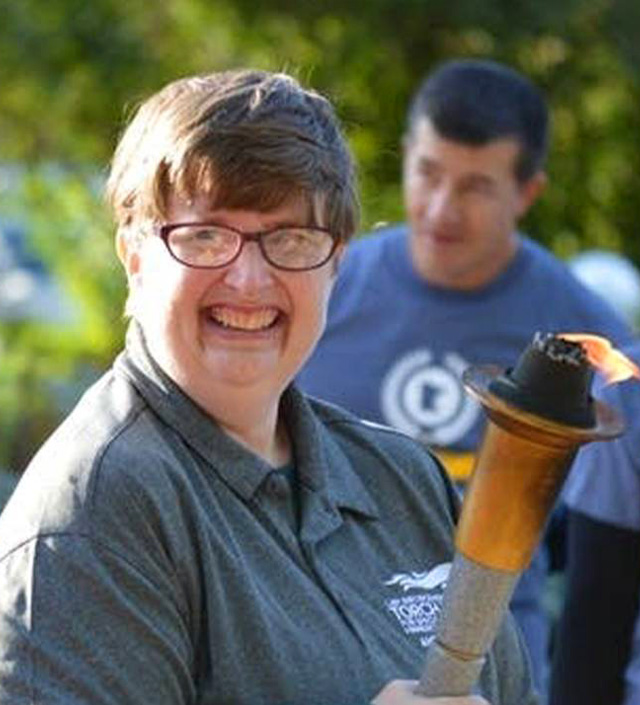
When I was 22, I moved into a home where I lived as a caregiver and housemate to four adults with intellectual and developmental disabilities. My colleagues and I were employed to provide care, assistance and companionship. Every year around the anniversary of each resident’s move into the community, we held a goal-setting celebration for them.
Goal setting can be daunting for many, but we had a structure that made it simpler and more meaningful. First, we reviewed the person’s values, skills and hobbies. What was important to them? What were they good at? What did they spend time creating for fun? During the celebration, a group of as many as 30 of the individual’s closest friends and family — and sometimes their coworkers or their social worker — gathered in a large circle in our living room to share the qualities we saw in our friend.
We affirmed the spark of joy we saw in each housemate’s old and new activities and relationships. We added items to the running list to review each year. We also shared the things that no longer seemed important to our friend, which we could now release from our time and energy.
A Plan for the Future
On a practical level, the one-hour meeting fit within our preparation for the annual ISP (Individual Service Plan) process for people receiving social work services. But it was more than just a review of what services they needed throughout the year.
From the beginning, we centered our meeting around what we saw as the strengths and interests of our friend who we were celebrating. We reviewed highlights from the past year. If the person was able to articulate these ideas, they would. Sometimes, our housemates relied on the words of others to communicate to the group what had been communicated in other ways. They would confirm what we had said out loud before we moved on to a new idea.
After some time, we would get down to business by proposing ideas for potential goals going forward. We reviewed our friend’s homelife, including their room, their housekeeping or gardening responsibilities and interests, and their relationships with housemates. We would review work and collectively learn of new projects they might pursue or their desire to slow down into more of a retirement mindset.
We’d review their religious life and ask if there were any activities for which they wanted to take on more of a leadership role within their personal-faith community or church, or elsewhere beyond our home-community life.
Building a Framework
We discussed anything our friend wanted and tried to build a framework that included what their goal would actually be, who would be the right support network to make sure our friend continued to purse this goal throughout the year, and any other steps. For example, their goal might be saving up for and buying airline tickets to visit a former housemate who had moved across the country — and picking a travel companion.
After the meeting, we gathered around our friend and shared our group’s intention to support them throughout the year with the things they cared about most. We also encouraged them to be the directors of their own life. Occasionally, the meeting was emotional. Oftentimes, I wished I had my own celebration where all my friends and family would gather to surround me with love and support for the goals I had set for myself to learn, grow and thrive.
Goal Setting in Financial Plans
My work in the group home taught me to appreciate the benefits of providing a supportive framework for goal setting and this is something I now use in financial planning.
Goals are best when they’re specific and related to an individual’s unique set of experiences, interests, values, skills and creative pursuits. If you are able to define multiple steps in the process from the beginning, you are more likely to be successful. Also, the more people you have supporting you, the more you are able to feel not only the encouragement and love of others, but also the pressure necessary to complete something hard. The more people you can include in on your goals, the more likely you are to have just the right mix of feel-good and tough love support for you to move forward.
When a new financial planning client starts working with us, often they have a specific question they’d like us to address. If they’ve never worked with a financial planner, they’re surprised when we show an interest in some aspects of their life beyond what they originally share. I’ve heard more than once, “You really want to know that?”
Recognize That Goals Change
We also know that who our clients were on the day we first met them is not necessarily who they are today. We all make choices about our careers, homes, education (or our child’s or grandchild’s education) that take us places we did not expect — and so do our clients. So, it’s important to recognize that our clients’ current goals may be very different than what they were even a year ago.
As we come out of the pandemic lockdowns, our clients are also exploring different ways to engage with friends, family and the world. Some clients may be traveling less but putting more thought into launching post-retirement employment or landing a board membership role, or a new volunteer position. They may wish to provide deeper charitable support through annual giving. Our clients may be thinking of finding that home they always had in the back of their mind, or spending more time on the water on a boat that might need a little work. We want to hear all about it.
Additional Reading: Understanding Neurodiversity Improves Planning for All
A Critical Question
I’ve also learned to ask this question: Why waste energy focusing on a goal that doesn’t actually bring you closer to the life you want to live?
I tell clients, “Review your goals regularly (gifting, estate, housing, etc.) to make sure they reflect your current values and interests, not a former version of yourself. My wish for you is that you keep learning and growing!”
Big and small, we want to hear about our clients’ dreams. We want to cheer them on and we want to be prepared with the proper time horizon of investments.
Elizabeth Wolleben Yoder, CFP, is the director of financial planning at Planning Across the Spectrum. She primarily meets with individuals and families to address the unique needs of disability to make sure they understand how government benefits impact their planning and how to find more local resources of support, housing and employment, all within the context of financial planning.







